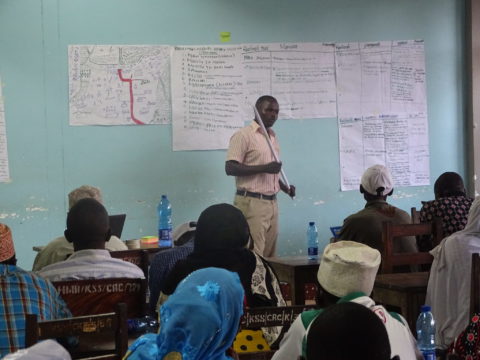In recent times, natural resource management has been moving toward a more collaborative and participatory management approach. This is no different to the approach adopted by Wetlands International and the Tanzania Forest Services in the Rufiji Delta Mangrove Management Plan that was formulated in 1991.
Initiated in October 2018 by Wetlands International, the review process involved key stakeholders from government agencies, Civil Society Organisations and Citizen Groups. The process entails integrating local aspirations to national, regional and global development, and conservation priorities. It is necessary to prepare a draft management plan that will be shared with the communities, particularly in the future, and with approval from the relevant minister.
A road map detailing the steps toward achieving an updated management plan has been developed. It includes a critical review of the gaps, emerging issues in the context of the environment including changes in policies and legislation, new threats to the ecosystem and sustaining livelihoods of the resource-dependent communities.

Such a plan is key for the management of mangrove wetlands that provides essential functions and services to coastal areas, biodiversity and human populations. It will act as a tool to administer, manage, facilitate and control the conversion of mangroves within the Delta. It will also serve as a guide for the management of the ecosystem for the biodiversity, tourism, research and education and strengthening of the body responsible for mangrove conservation and restoration.
This review is part of the interventions implemented under the Mangrove Capital Africa programme supported by DOB Ecology

